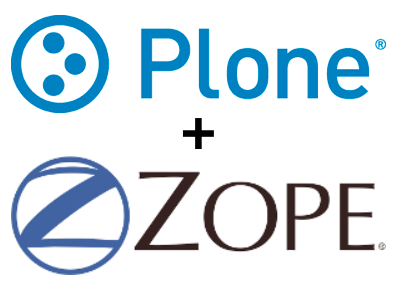Zope and the Plone Foundation
A tale of two software foundations and their ultimate merger

Plone was very early to open source governance - the Plone Foundation was one of the first 501(c)(3)s to be established to protect open-source software. In the years that have followed it's become more common for software to be protected under an umbrella organization, but that wasn't possible in the early days.
Zope started off as the property of Digital Creations, which became Zope Corporation. But in the early 2000's there was a desire to move the protection of Zope to a community effort following the same model, so a new non-profit was formed.
This worked well for ten years, but by the mid 2010's there were significantly fewer active developers of Zope and most were not interested in the administrative tasks required to maintain a non-profit corporation. Over the years, the Zope Foundation fell behind in its regulatory compliance until it became inactive. It still owned the copyright to Zope, as well as some funds, but it had very limited rights over them.
The Plone Foundation's mission to protect Plone implies a responsibility to protect Zope, as Plone depends on Zope for much of its core infrastructure. Informal discussions began around this time about Plone taking over the role of the Zope Foundation, but no substantial progress was made.
As the years passed, the need to solve the regulatory problem became more pronounced. It was clear that the Zope Foundation would not restart operations in any meaningful sense, but Zope development was undergoing a resurgence thanks to the need to port to Python 3.
At the 2018 Plone conference in Tokyo, after quite a few whiskies, people resumed talking about this problem, and we decided to try to solve it again. Because one of the biggest blockers was a lack of enthusiasm in the Zope community with regards to dealing with the bureaucracy, some people who were members of both Foundations reached out to the IRS, the Delaware Department of State and some experts in US Corporation law to plan a way forward.
A few months later in early 2019, the Zope Foundation held a special general meeting to pass a motion on the future of the Foundation. The membership mandated the board of directors to transfer all assets to the Plone Foundation as a donation, and to formally close the Zope Foundation. Later that same day the board of directors voted to donate all property of the Zope Foundation, including copyright in the Zope software, to Plone.
Since then, Plone community members have been working on the bureaucratic aspects of this move. We've harmonized contributor agreements to improve international enforceability, and work is underway to ensure that Zope contributors are properly represented in Plone's democratic structure before the next internal election in November. Zope contributors can already apply to be members of the Plone Foundation, and many are, but we're looking to streamline the process for former Zope Foundation members.
The Zope and Plone Security Teams have already been integrated, and now we need Zope representatives on the Membership Team. Any Zope people who are interested in helping out should please contact Érico Andrei.